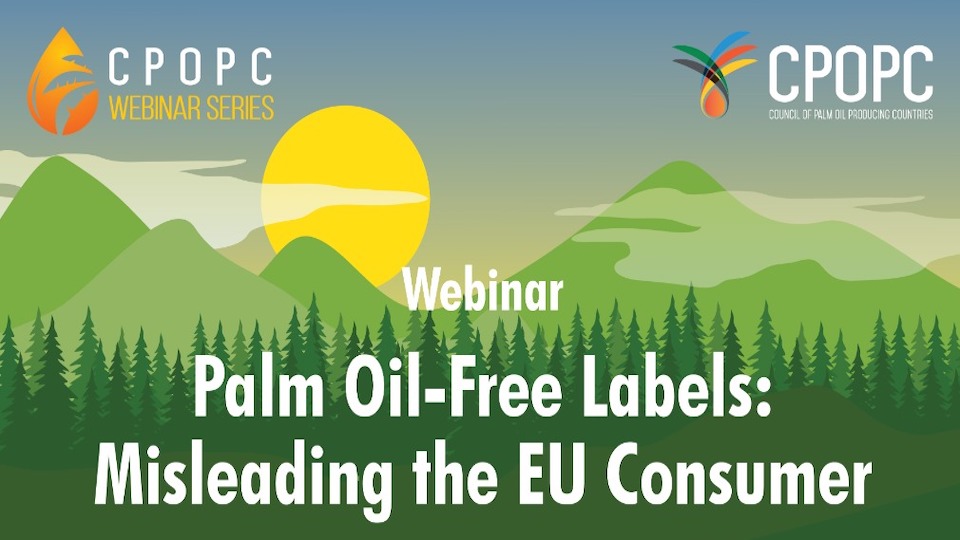Free From Misleading Labels – CPOPC Webinar
Free From Misleading Labels
Free from labels are designed to indicate to consumers that an ingredient that is harmful to human health or the environment is not present in a product. This practice in fact, has been used misleadingly when it comes to palm oil, vegetable oil that is increasingly being produced sustainablY. And with a healthy nutrition profile, yet the continued use of the label has a defamatory effect on palm oil.
WATCH AGAIN: EMPOWERING CONSUMERS >>>
More over palm oil which has been produced in respect of high environmental and health standards remains an object of targeted discrimination by “palm oil-free” labels. Thus, in the meantime, consumers are being misled into purchasing products containing alternative vegetable oils which may have the worst environmental performance or nutritional profile compared to some palm oils.
On palm oil free labels I recommend the research study by Campagne Liberali and the For Free Choice Institute >>>
Fake news and falsehoods on food labels. The big “free-from” deception
“Free-from” claims are often used for persuading consumers that the absence of one ingredient makes the product better. The intention is to communicate that the excluded nutrient should be avoided because it is harmful, whereas its substitutes are better.
The comparative study entitled Palm oil free, but more saturates and less sustainable shows that the “palm oil free” message is deceiving for consumers.
We have chosen palm oil because it is a symbolic case. It is accused of being harmful to health because it is too rich in saturated fats. It is also accused of being poorly sustainable for the environment, in as much as on its own it is responsible for deforestation and a major threat to biodiversity and local communities.
In the study we show that many products containing palm oil contain the same, if not lower, levels of saturated fats compared to those in which palm oil has been removed, with the fact that this has been done appearing on packaging and in communications.
We also demonstrate the ingredient’s greater sustainability compared to its vegetable and animal substitutes.
The “palm oil free” claim is misleading for consumers. It leads them into believing that “free from” products are necessarily better for their health and the environment than those “with”.

